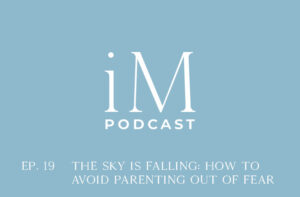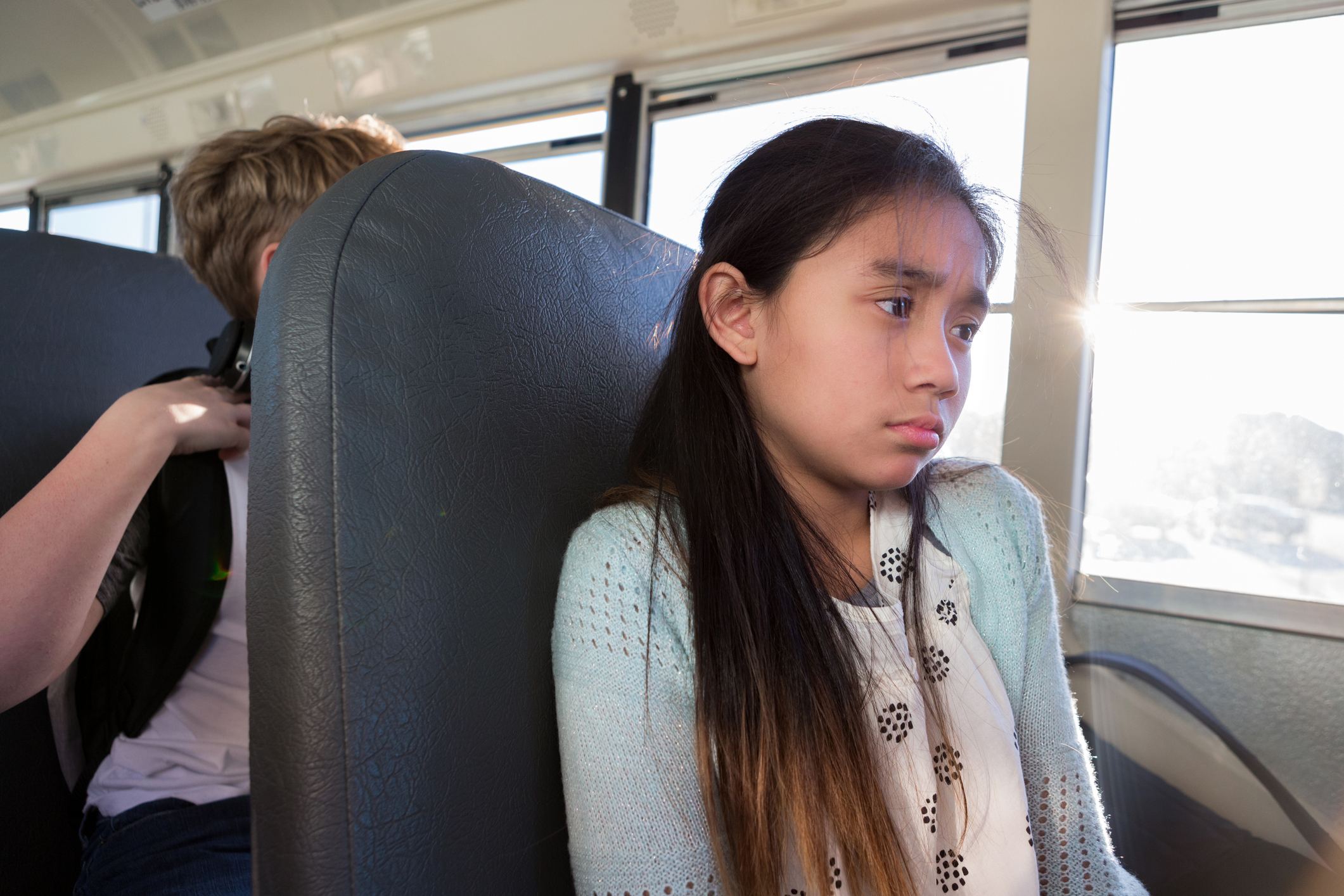A coworker, whose daughter is three years younger than my youngest child, came to me one morning with a concerned look on her face. She blurted out, “I have so much anxiety about leaving her at school. This can’t be normal. When does the worrying stop?” Thinking about how often I spiral around the same anxious thoughts, I answered, “I’ll let you know!”
I ended up telling her I go through phases. Some days, all the sources of parental anxiety (It’s more than just separation.) linger in the background, and some days I’m texting friends to pray for my kids because I have a terrible feeling I can’t shake. Life as a mom doesn’t have to be like this. If you’re unsure if your feelings are normal, here are symptoms of parental anxiety and strategies to free yourself from it.
Is it worry or anxiety?
Most people worry a little. But according to researchers at Healthline, there are a handful of differences between worry and anxiety. A few stand out to me. Worry is caused by real events, and anxiety is created by the mind. Worry keeps perspective. Anxiety tends to catastrophize. Worry can be managed while anxiety can be debilitating.
What are you dealing with right now? Zoom out and ask yourself, has something specific happened with my child, or am I inventing a scenario? If something specific has happened, am I writing a scarier story than what’s real? Can I take my thoughts and think of a next step, or are the thoughts paralyzing me?
Do you experience these symptoms of parental anxiety?
One sign of anxiety is the inclination to move a situation from possible to probable. To earn a badge for scouts, my son had to fall out of and climb back into a canoe in the middle of a lake. We live in Florida, so there’s always a possibility of gators. Anxiety would’ve caused me to pull him from the campout, convinced of the probability he’d encounter a gator. (Anxiety didn’t win. He earned his badge!) When you convince yourself something is probable and exhibit shielding or avoidance behaviors, that’s a sign the anxiety is getting the best of you.
Another symptom of parental anxiety we’re all at least moderately familiar with is excessive research. I mean, if you haven’t used WebMD to investigate a red mark on your child’s belly and convinced yourself she has a flesh-eating bacteria, are you really a parent? It’s one thing to investigate a legitimate concern. It’s another to overthink, overanalyze, and go into decision paralysis.
One familiar sign of anxiety is that it preoccupies you and keeps you from functioning. Being a mom should change your life, but it shouldn’t keep you from living it. If thoughts are so consuming that you can’t work, sleep, eat, or give attention to other relationships, it’s time to ask for help.
Try these strategies to manage parental anxiety.
Sometimes, I think I have to accept that I have anxiety. I’ve made it this far, and it hasn’t killed me yet! As tempting as it might be to just live with it, there’s a compelling reason we should actually take steps to manage our parental anxiety. Studies show children of anxious parents are five to seven times more likely to develop anxiety disorders than those of non-anxious parents. I don’t want to pass this on to my kids, so here are a few things I’m working on.
First, I pray. I know God doesn’t want me to worry or be anxious, so I ask for peace. I also talk to a therapist. Yes, it costs money, but it’s worth it. She’s given me breathing techniques to use when I’m spiraling and encouraged me to acknowledge what’s difficult instead of denying it. Saying things like “Raising kids is hard, so worry is understandable!” takes away some of the fear’s power. I’ve also found comfort in sharing my thoughts with other moms. Anxiety is isolating. You think you’re the only one who is losing control of her thoughts, but that’s just not true.
And don’t forget to include the kids.
One last idea that can relieve anxiety and help your kids feel stronger: Give them tools and knowledge. Before I taught my kids to swim, I was a maniac about arming the alarms on the doors leading out to our pool, latching the pool fence, and guarding the steps leading into the water. Swim lessons helped bring that anxiety down a few notches. What gives you the most anxiety, and how can you empower your kids? Discovering the answer to those questions can lead you and your kids to greater peace.

What gives you the most parental anxiety? What could you do to empower your child in this area?










